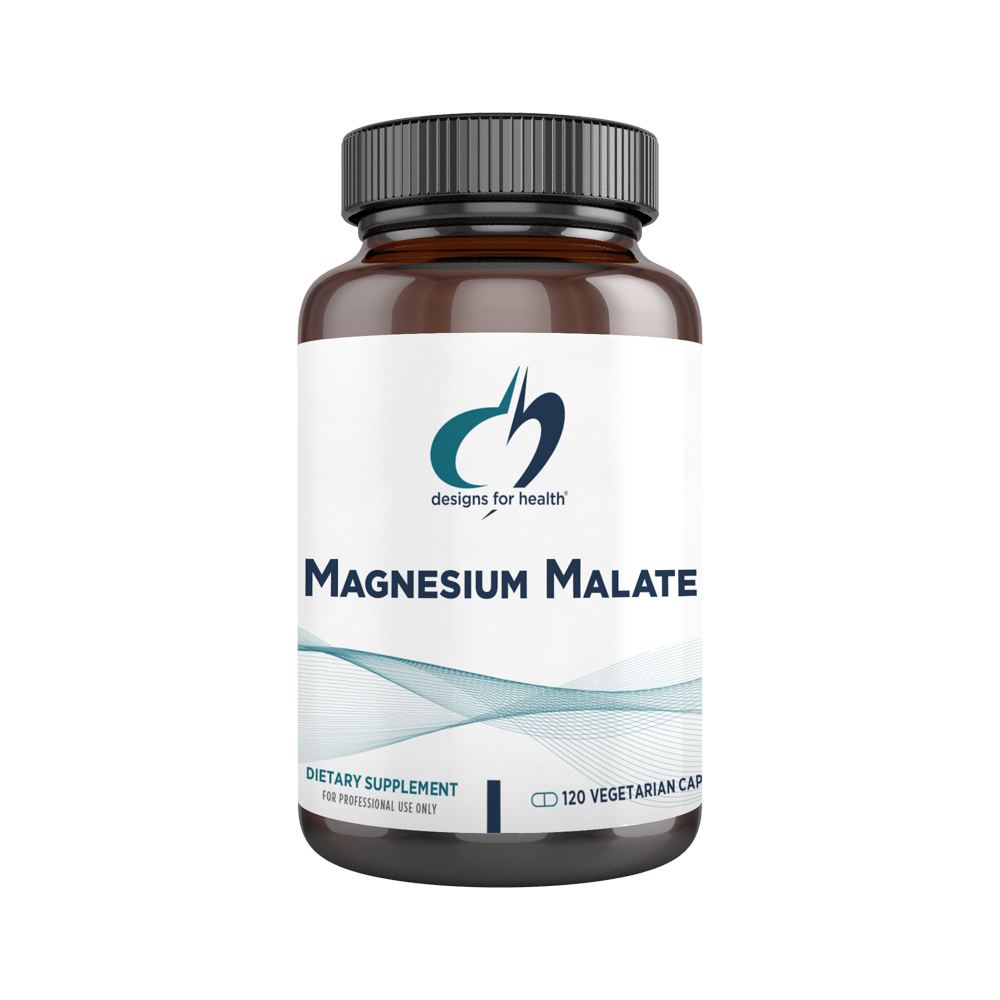Magnesium Malate: The Powerful and Highly Bioavailable Mineral for Optimal Health

Magnesium Malate is a potent and easily absorbed form of magnesium, featuring di-magnesium malate, a unique combination of magnesium and malic acid. Magnesium plays a vital role in numerous enzyme reactions within the human body. Meanwhile, malic acid, which occurs naturally in fruits and vegetables, is a key component of the Krebs cycle, the body’s energy-generating system.
Recommended Use: As a dietary supplement, take 2 capsules daily with food, or as directed by your healthcare professional.
Are you looking for a highly absorbable form of magnesium to support your overall health? Look no further than Magnesium Malate, a unique combination of magnesium and malic acid that provides numerous benefits for the body.
Pros:
Highly bioavailable form of magnesium
Helps support numerous enzyme reactions in the body
Malic acid aids in the body’s energy production
May support muscle and nerve function
May help reduce anxiety and promote relaxation
May support cardiovascular health
May help regulate blood sugar levels
May support bone health
May help reduce migraines
May help alleviate symptoms of PMS
Cons:
May cause digestive discomfort in some individuals
May interact with certain medications
High doses may cause diarrhea
FAQs:
- What is magnesium malate?
Magnesium malate is a form of magnesium that is bound to malic acid, a compound found naturally in fruits and vegetables. - What are the benefits of magnesium malate?
Magnesium malate may help support numerous enzyme reactions in the body, aid in energy production, support muscle and nerve function, reduce anxiety and promote relaxation, support cardiovascular health, regulate blood sugar levels, support bone health, reduce migraines, and alleviate symptoms of PMS. - How is magnesium malate different from other forms of magnesium?
Magnesium malate is highly bioavailable and may be better absorbed than other forms of magnesium. - Can magnesium malate help with anxiety and stress?
Magnesium malate may help reduce anxiety and promote relaxation, which can help manage stress. - How much magnesium malate should I take?
The recommended dose is 2 capsules per day with meals, or as directed by your healthcare professional. - Can magnesium malate cause side effects?
High doses may cause diarrhea, and some individuals may experience digestive discomfort. Magnesium supplements may also interact with certain medications. - Is magnesium malate safe for pregnant women and children?
Pregnant women and children should consult with their healthcare provider before taking any magnesium supplement. - Can magnesium malate help with migraines?
Magnesium malate may help reduce the frequency and severity of migraines. - Can magnesium malate help with PMS symptoms?
Magnesium malate may help alleviate symptoms of PMS, such as cramps and mood changes. - Where can I buy magnesium malate?
Magnesium malate is available for purchase at Alpha Male Clinic and other health food stores.
Conclusion:
Magnesium malate is a powerful and highly bioavailable form of magnesium that can provide numerous benefits for the body. From supporting enzyme reactions and energy production to promoting relaxation and reducing migraines, magnesium malate is a must-have supplement for optimal health. Consult with your healthcare provider to see if magnesium malate is right for you.
Nutraceuticals are a type of dietary supplement that contains bioactive compounds, which are known to have medicinal benefits.
Nutraceuticals are generally considered safe for consumption. However, it is recommended to consult with a healthcare professional before taking any new dietary supplement to ensure that it does not interfere with any pre-existing medical conditions or medications.
Some nutraceuticals may have side effects, depending on the individual’s sensitivity and dosage. Common side effects include digestive issues, headaches, and allergic reactions.
No, nutraceuticals should not be used as a substitute for prescription medications. They can be used to support overall health and wellness, but it is important to follow the recommendations of a healthcare professional regarding the use of prescription medications.
Nutraceuticals are regulated by the FDA as a dietary supplement. However, they are not subject to the same level of scrutiny as prescription medications.
Nutraceuticals are not required to undergo the same level of testing as prescription medications. However, reputable manufacturers will typically conduct safety and efficacy studies on their products.
Some nutraceuticals have been shown to support weight loss, such as green tea extract and conjugated linoleic acid. However, it is important to maintain a healthy diet and exercise regimen to achieve sustainable weight loss.
Nutraceuticals have been shown to have potential benefits in preventing chronic diseases, such as heart disease and diabetes. However, more research is needed to fully understand their effects.
It is generally safe to take multiple dietary supplements together, but it is important to consult with a healthcare professional to ensure that the combination is safe and effective.
Nutraceuticals may be suitable for children, depending on the product and dosage. However, it is recommended to consult with a healthcare professional before giving any dietary supplements to children.
More Nutraceutical Resources:
XanthOmega Krill Oil, Amino Acid Synergy, L-Arginine, Berberine Synergy, Brain Vitale, CLA Softgels, Carnosine Supreme, Carnitine Synergy, D-Evail, DIM-Evail, EGCG, L-Glutamine, 5-HTP, Insomnitol, Iodine Synergy, KreAlkalyn Pro, 7Keto, LVGB, Liposomal Glutthione, Liposomal NMN Synergy, LibidoStim Men, LibidoStim Women, Melatonin, Magnesium, N-Acetyl Cystine, PaleoFiber, Primal Multi, Prostate Supreme, Ultra B12-Folate, Zinc
